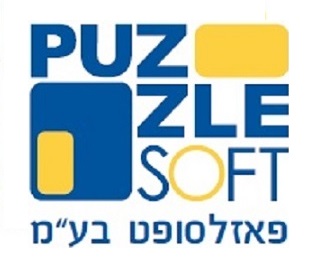In the last year, Puzzlesoft won a grant from the Innovation Authority to establish an FHIR platform to make medical information from the health organization accessible to the patient and to empower him as having the ability to share his information with a third party, in collaboration with Israel’s largest foster care network – Beit Belev!
The purpose of the project is to strengthen the technological and therapeutic capabilities in the field of rehabilitation/home care by connecting the patient and the therapist to the medical file in a unified and integrative manner, and building a broad capacity that allows the patient to share information from his medical file with third-party parties such as service providers and assistive technologies, medical file companies others, funds, startups, research bodies and companies. This vision described in Figure 1 began to be realized already in the last year when an application was developed for the multi-professional team of therapists of Beit Belev which connects the therapist to the medical file in order to document the course of treatment at the patient’s home.
Answering this call complements this vision by giving every user the possibility to connect to his medical file through a third party, including the patient who will be able to connect to his medical file and share information from it with a third party. The technological innovation of the answer lies in a new platform called PuzzleOnFHIR which was opened as part of this call and includes a series of components that will be implemented and tested in the pilot, all based on FHIR and smart-on-fhir standards: 1)
FHIR infrastructure in the health organization – interfacing For Puzzlespot’s medical file in the FHIR standard. FHIR server Intersystem will also support the standard and smart-on-fhir Ltd. to allow authorized users of third-party applications (e.g. patients) to share data.
2) Service of obtaining consent from users of third-party applications for sharing information and managing the granting of permissions by them– This service will allow registered users of the health organization access to their medical file. Thus, any entity that implements smart-on-fhir (e.g. POS or startup) will be able, as part of its identification process, to connect to this service, and offer its authorized users to share information from their medical file as well as manage the granting of permissions on this information.
3) A third-party application that allows the user to share information from the medical file through it – As the first third-party application that allows users to share information from their medical file in FHIR, an innovative application from Puzzlesoft called SMARTPuzzle will also be opened and implemented as part of this call, which will allow users, as owners of their medical data, to share through it information from the Puzzlesoft medical file in any health organization that implements smart-on-fhir. This application will implement the smart-on-fhir standard on the client side, so that each user can decide whether they want to share information from Puzzlesoft’s medical file through the application in the medical organization where they are registered. Thus, as part of a multi-stage pilot that will be carried out in this call, the SMARTPuzzle application will allow Beit Belev’s registered patients to connect to their medical file, and will offer them to share with her information (read only) about their diagnoses, medications and treatment instructions that will be presented to them in the interface. In this way, the patient at home can be a partner in the treatment and understand what he must do at each stage of the treatment.
The functional innovation of the application is in the PuzzleOnFHIR platform which allows the patient to decide to share information about his medical treatment in home rehabilitation while connecting all the professional factors to his medical file: the members of the multi-professional team (7 staff members), the patient himself, and the manager of the home rehabilitation unit. In addition, in this project, an innovative, complete and working infrastructure will be built which will allow other entities in the future (for example, other medical file companies, funds and startups) to interface smart-on-fhir to the medical file of Puzzlesoft Beit Belev. As far as we know, we are the first in Israel to allow users such as patients access to their medical file to empower remote rehabilitation management in the FHIR infrastructure between a health organization and third party entities.
Figure 1 – The vision of the application for remote home restoration management. Components that were implemented as part of the call for proposals are marked with “NEW”. The patient application will later be converted to be in the FHIR infrastructure
The system will connect the patient to the treatment process through the SMARTPuzzle application with the transmitted information transmitted in the FHIR standard , thereby empowering him and allowing him to share medical information from the medical file of Beit Belev, which includes diagnoses, medications, and current treatment guidelines. The application will receive this information from Beit Belev’s FHIR server and present it to the patient. In this way, the patient will be able to view his diagnoses from a distance and understand what his clinical problems are, know which medications he should take by viewing his regular medication list, and also understand the treatment instructions that the therapist informed him in the medical file and that he should carry out at home. These instructions will include treatment instructions (for example, standing on your toes for a minute every day), as well as risk prevention instructions (for example, using assistive equipment) which will improve the The quality of care in the remote rehabilitation process.
This figure describes the products and an example of the main pilot scenario using the SMARTPuzzle application (The assumption here is that the user is registered in the home in Belv and has a username and password):
The patient opens the SMARTPuzzle application .
As a first step, he chooses which medical center he wants to connect with (#1 in the figure). In this example we see the medical centers Beit Belev, Reut and a research institute. This is because the user is registered in each of these centers, and all centers implemented the smart-on-fhir standard which allows sharing information with their users through a third party. Now, the user is directed to the patient identification service of the Avot Beit Belev medical file (#2 in the figure). Please note that this page is not part of the integral application of SMARTPuzzle . As soon as the user registered in the system selects a medical center, he is redirected to it and enters his name and password on the page. After successful identification (#3 in the figure), the user is asked to fill out a consent form (#4 in the figure).
He is also given an explanation why he is being asked to confirm, what the information contains and at what level of identification (in this case, information is completed without identifying the patient). When the user agrees to share the information, they are redirected back to the home page of the SMARTPuzzle application (#5 in the figure).
The user can now choose what information they want to view – diagnoses, medications or treatment guidelines. In this case, he chooses the instructions coming from the medical file and is shown an instruction to use an auxiliary tool (#6 in the figure). This information, and the rest of the information comes from the corporate FHIR server at Beit Belev in a complete manner. 2

